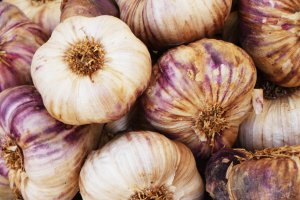What are the best substitutes for garlic powder. You open the cupboard ready to do some cooking and realize you have no garlic powder – what do you do? What is the best garlic powder to minced garlic ratio? We suggest freshly chopped garlic, garlic salt, granulated or minced garlic, onions, shallots, garlic chives, or onion salt.
What is Garlic Powder?
Garlic powder is a dried and ground form of garlic. It is made by dehydrating garlic cloves and then grinding them into a fine powder. The process of dehydration removes most of the moisture from the garlic, resulting in a concentrated flavor and a longer shelf life compared to fresh garlic.
One teaspoon worth of garlic powder contains about 2-3 cloves’ worth of flavor. Therefore, when using garlic powder in recipes, it is generally recommended to start with a small amount and adjust to taste, as it can easily overpower a dish if used excessively.
Okay, before we look at your garlic powder substitute options, let’s deal with that empty cupboard situation!
Where can I buy Garlic Powder?
If you want to be more prepared and ensure you don’t run out of garlic powder again then you should stock up now.
Nowadays most health stores, delicatessens, and general supermarkets stock a wide variety of garlic powder.
Or if you prefer you can also purchase garlic powder on-line.
So why not jump on and place your order today.
STOCK UP NOW!
Spice Classics organic Garlic Powder
Large 5.25lb pack of organic Garlic Powder Seasoning. Perfect substitute for fresh garlic.
Never run out again!
What can I substitute for Garlic Powder?
Here are some of the best ways to substitute the flavor and role that garlic powder provides in your recipes.
Use any of the following as a substitute:
- Fresh chopped garlic (or garlic paste)
- Garlic salt
- Granulated or Minced garlic
- Onions
- Shallots
- Garlic chives
- Onion salt
Garlic Powder substitutes
Freshly chopped garlic
Fresh chopped garlic and garlic powder are both used to add garlic flavor to dishes.
Fresh garlic has a pungent, robust flavor that can vary in intensity depending on the variety and freshness. It provides a stronger, more pronounced garlic taste to dishes whereas garlic powder has a milder, more concentrated flavor.
Chopped garlic adds texture to dishes, with small bits of garlic providing a slight crunch when cooked. Garlic Powder on the other hand is a fine, dry powder with no texture. It dissolves easily when cooked or mixed with other ingredients.
Using fresh garlic requires peeling, chopping, and handling the cloves. It may take more time and effort to prepare, but it offers a fresher taste. Fresh garlic has a limited shelf life and should be used within a few weeks. It also needs to be stored in a cool, dry, dark environment.
It’s important to note that the choice between fresh chopped garlic and garlic powder depends on personal preference and the specific recipe. Some people prefer the freshness and texture of fresh garlic, while others appreciate the convenience and consistent flavor of garlic powder. You can also combine both forms in certain recipes to get the best of both worlds.
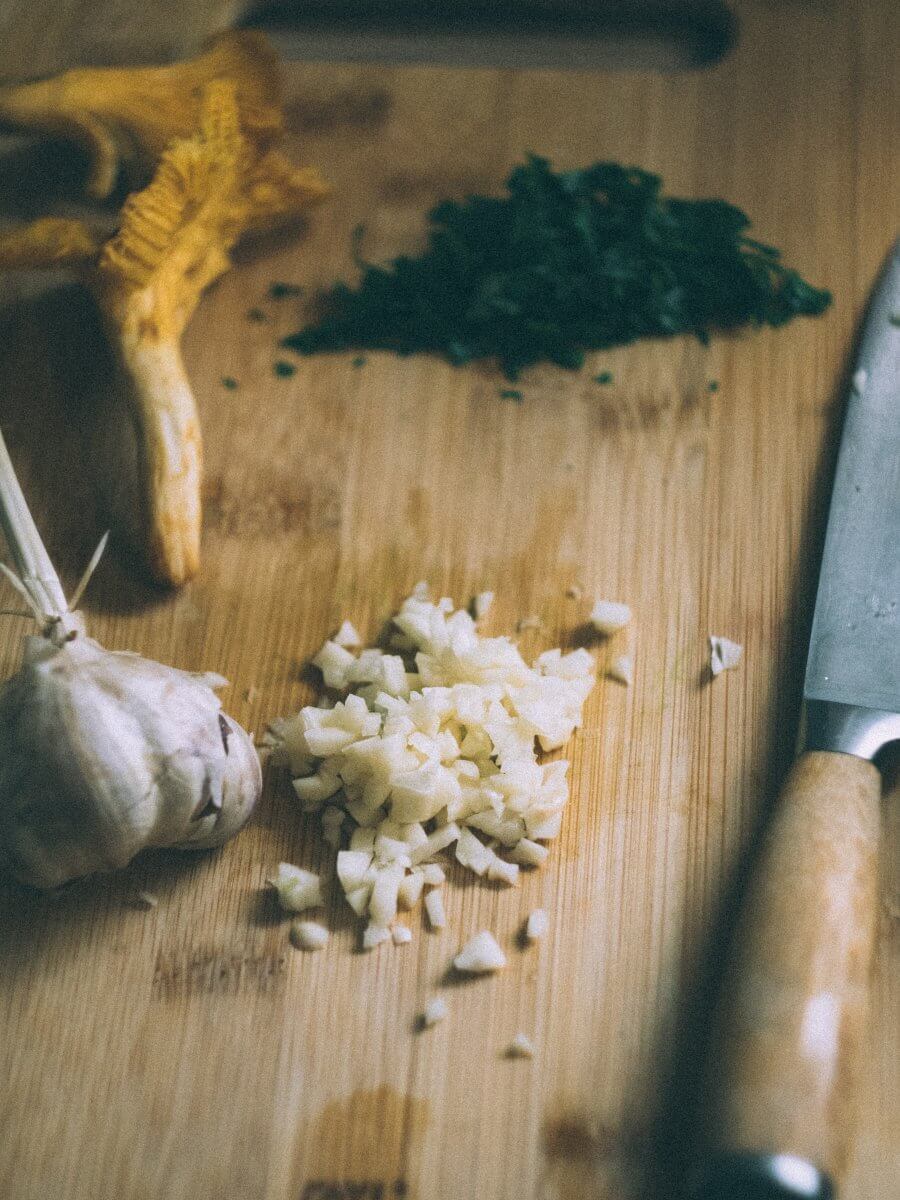
Garlic salt
Making garlic salt at home is relatively simple and allows you to control the ingredients and flavors. As you are looking for an alternative to garlic powder we have used fresh garlic in this recipe. Okay, here is a basic recipe to make your own garlic salt:
Ingredients:
- 1 to 1.5 bulb of fresh garlic (finely chopped or crushed)
- 1 cup salt (choose the type of salt you prefer, such as kosher salt or sea salt)
Instructions:
- Combine the fresh garlic and salt in a bowl.
- Spread evenly on a sheet of baking paper and bake for one hour at 180F (82C).
- Leave to completely cool before mixing through.
- Transfer the mixture to an airtight container, such as a spice jar or a small glass container with a tight-fitting lid.
- Seal the container and shake it well to further distribute the ingredients.
- Store out of direct sunlight. This should keep for approximately 2 to 3 months – if you can keep it that long!
Tips:
- You can adjust the ratio of fresh garlic to salt based on your preference to give a more intense flavor.
- Experiment with different types of salt to find the one that suits your taste. Each type of salt may offer a slightly different flavor profile.
- Feel free to add additional seasonings to your garlic salt, such as dried herbs or spices like black pepper, paprika, or parsley. This can add complexity and customization to the flavor.
Remember that homemade garlic salt may have a stronger flavor than store-bought versions, so you may need to use it in smaller quantities when seasoning your dishes.
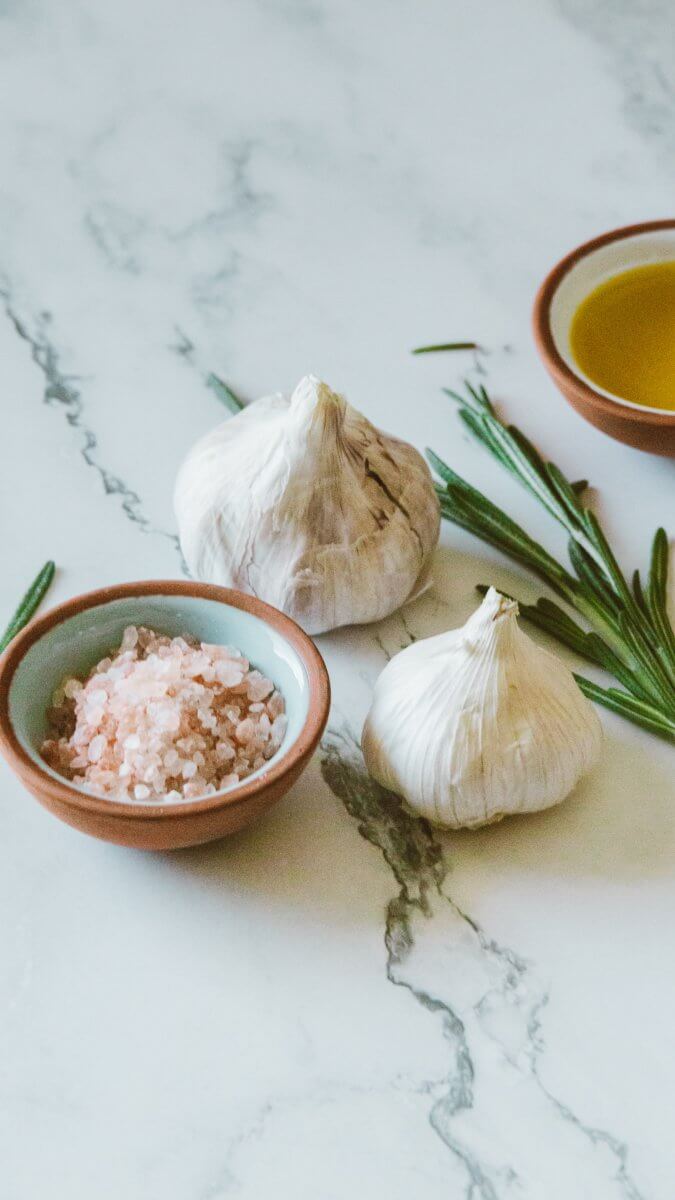
Granulated or Minced garlic
Granulated garlic and minced garlic are both forms of dried and ground garlic, but they differ in terms of texture and intensity of flavor. Made from fresh garlic cloves granulated garlic has a coarser texture compared to minced garlic. It consists of small, grainy particles that are larger than those in garlic powder. The texture of granulated garlic adds a subtle crunch when used in dishes.
The granulated garlic offers a robust and intense garlic flavor, whlst minced garlic is slightly less robust. Granulated garlic has a more pronounced taste compared to garlic powder. Whilst Minced garlic is slightly more mellow.
Granulated garlic works well in recipes where you want a more pronounced garlic flavor and a bit of texture. It is ideal for use in rubs, marinades, spice blends, and in dishes like roasted meats, vegetables, and sauces. Minced garlic, which can be wet or dried, is coarsley cut. This makes it ideal for recipes where you want chunks of garlic but a mild flavor.
Minced garlic is a convenient way to add garlic flavor to your recipes. Although it does not offer as robust a flavor and texture as granulated garlic, it’s convenience makes up for this.
When using minced garlic remember the garlic powder to minced garlic ratio. As a rough guide for how much garlic powder is equal to a tablespoon of minced garlic – well 3 teaspoons or 1 tablespoon of minced garlic to powdered garlic would equal 3/4 of a teaspoon of garlic powder. Use it wisely so you don’t overpower the flavor of your dish.
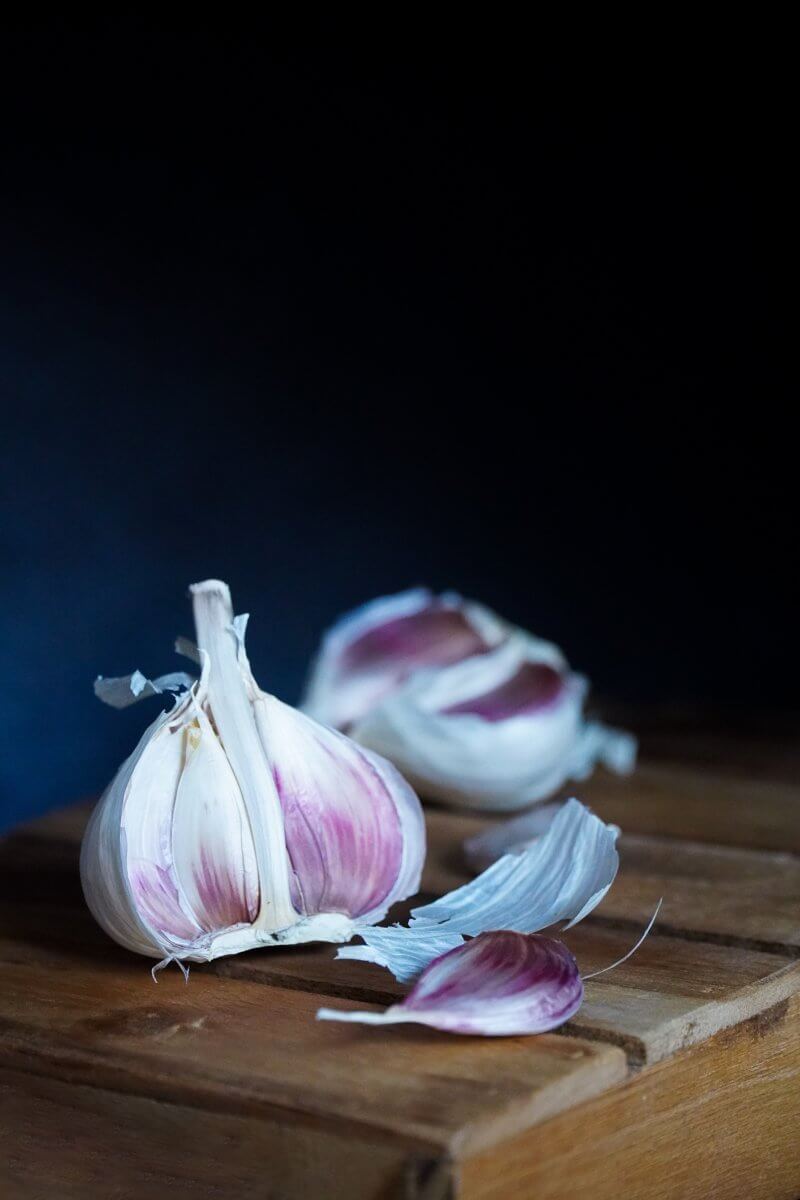
Onions
We all tend to have onions in our pantry and they can be used as a convenient substitute for garlic powder in certain recipes
Using fresh onions is the closest substitute for garlic powder in terms of flavor. Finely chop or mince the onions to mimic the texture of garlic powder. Keep in mind that onions have a milder flavor compared to garlic, so you may need to use a larger quantity of onions to achieve a similar intensity of flavor.
You could also use sautéed onions as a substitute for garlic powder, but they tend to have a mild flavor. Try cooking the onions in a little oil or butter until they become soft and translucent then add them to your recipe.
Remember if you do substitute onions for garlic powder, it’s essential to consider the recipe and adjust the quantities accordingly. Start by substituting an equal amount of fresh onions or onion powder for garlic powder. You can then taste the dish and make further adjustments based on your preference.
Remember that while onions can provide a similar flavor profile to garlic powder, they have their own distinct taste, especially if you use sweeter red onions. It’s best to consider the specific recipe and your personal preferences when deciding to substitute onions for garlic powder.
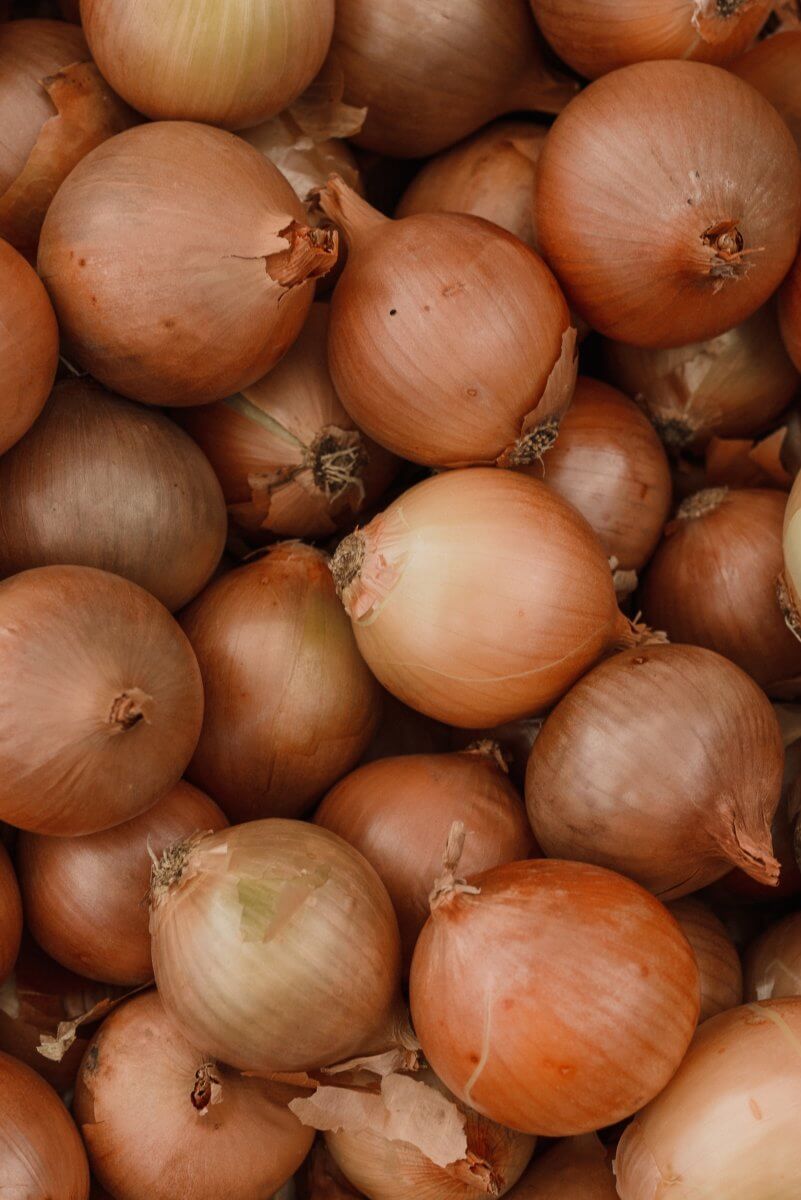
Shallots
Like onions, shallots can be a great alternative for garlic powder as they have a similar flavor profile.
Shallots have a mild and delicate flavor that combines the sweetness of onions with a subtle hint of garlic. They offer a more nuanced and complex taste compared to garlic powder. Shallots provide a slightly sweeter and less pungent flavor than garlic, but still contribute to the overall savory profile of a dish.
Shallots have a firm and crisp texture. When cooked, they become tender and add a subtle bite to dishes. Chopped or minced shallots offer a slightly textured element to recipes. They work particularly well in recipes that call for a milder garlic flavor or when a more complex taste profile is desired.
Shallots can generally be used as a 1:1 substitute for garlic powder, but keep in mind that the flavor will be slightly different. So if a recipe calls for a teaspoon of garlic powder, you can typically use a teaspoon of minced shallots or a tablespoon of chopped shallots as a starting point.
Shallots can work well as a substitute for garlic powder in various recipes, particularly those that benefit from a milder garlic flavor or where a more delicate taste is desired.
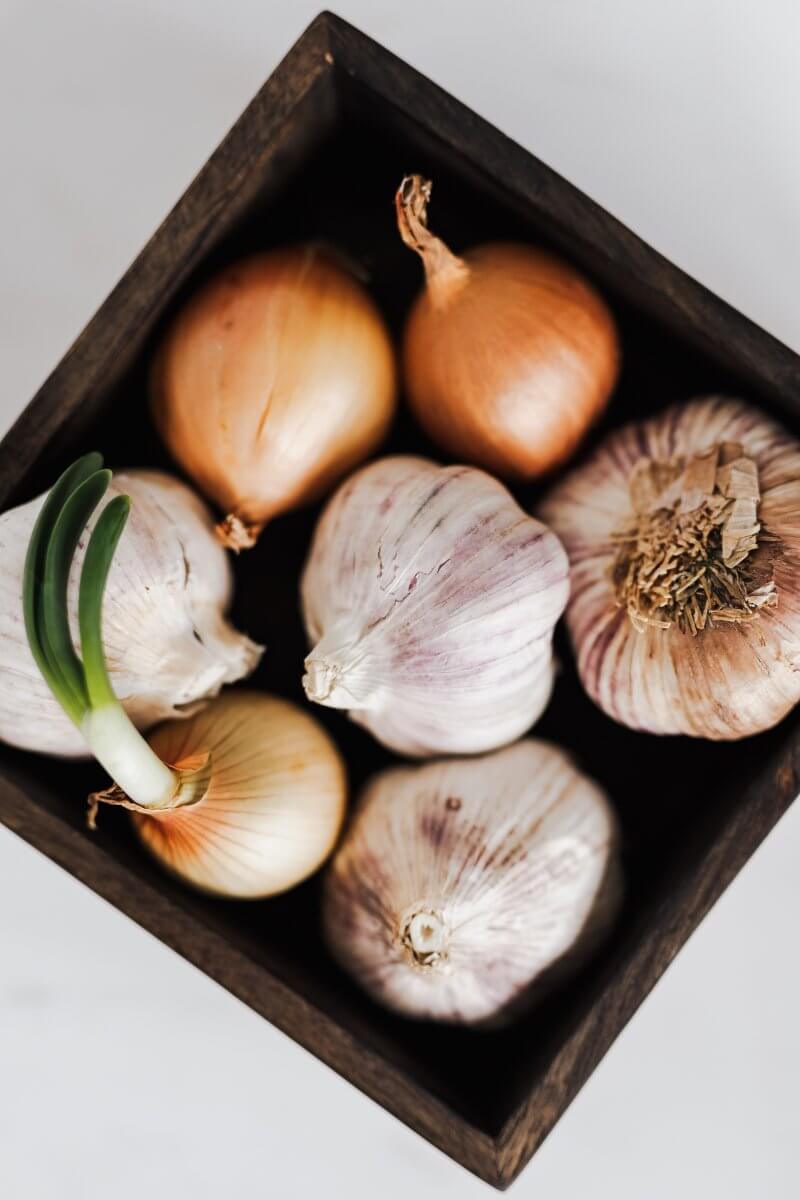
Garlic chives
Garlic chives, also known as Chinese chives have long, slender green stalks that resemble grass. The leaves are flat, strap-like, and typically have a slightly wider shape compared to common chives.
As the name suggests, garlic chives have a distinct garlicky flavor, which is milder compared to regular garlic cloves. The flavor is a combination of garlic and onion, with hints of sweetness.
Garlic chives are popular in Asian cuisine, particularly in Chinese, Korean, and Thai dishes. They are often used as a fresh herb and can be consumed raw or cooked. The leaves and stalks are commonly added to stir-fries, dumplings, soups, noodle dishes, and savory pancakes. The mild garlic flavor of garlic chives makes them versatile for various recipes.
Garlic chives are a flavorful herb that brings a unique garlic twist to dishes. They are valued for their culinary uses, especially in Asian cuisines, and offer a versatile alternative to regular chives or garlic cloves.
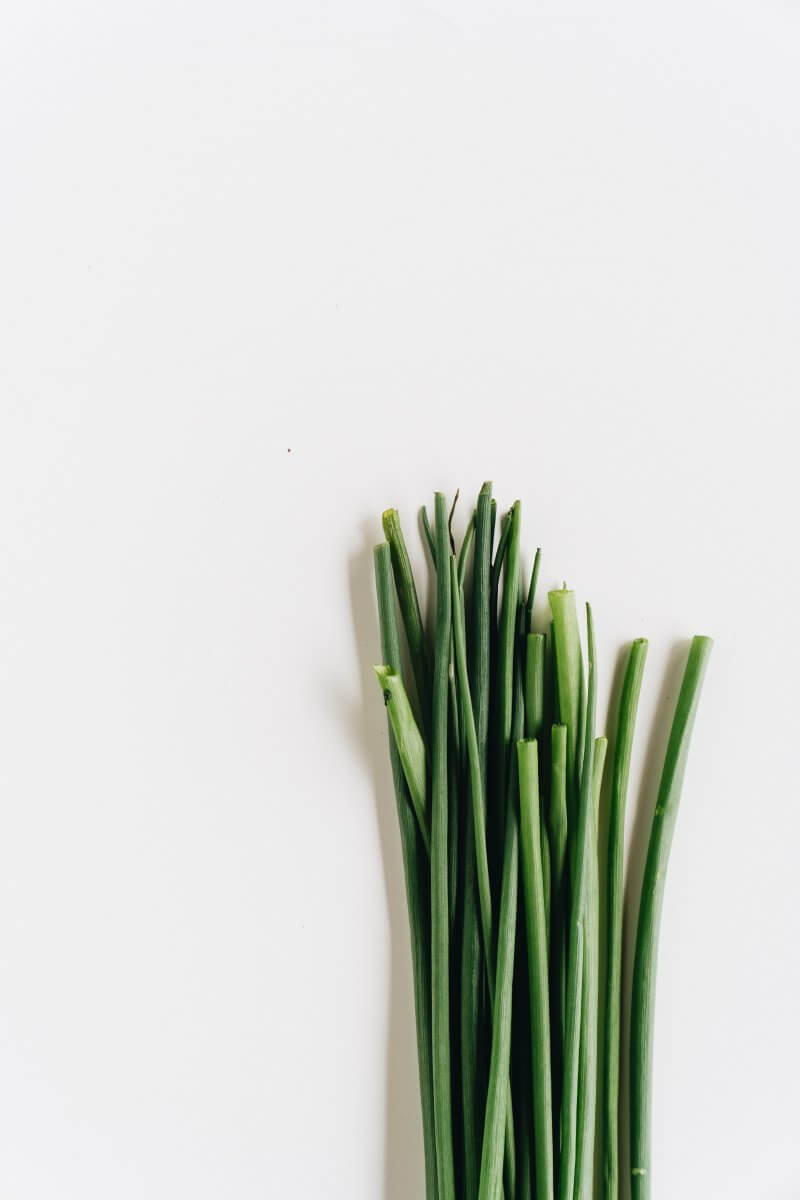
Onion salt
Onion salt is another great substitute for garlic powder, especially if you’re looking to add both onion flavor and saltiness to the dish. It easily provides a combination of onion flavor and saltiness. The onion flavor will be more pronounced compared to garlic powder, so keep in mind that the final taste of the dish will have a stronger onion presence.
Onion salt also contains salt as an ingredient, which means it will add saltiness to the recipe in addition to the onion flavor. Adjust the salt content of the recipe accordingly to avoid over-seasoning.
When substituting onion salt for garlic powder, start by using an equal amount of onion salt as the required garlic powder and adjust to taste.
Onion salt can be a suitable substitute for garlic powder in recipes where the additional onion flavor and saltiness are desired.
Remember onion salt will alter the flavor profile of the dish, providing a stronger onion taste and saltiness.
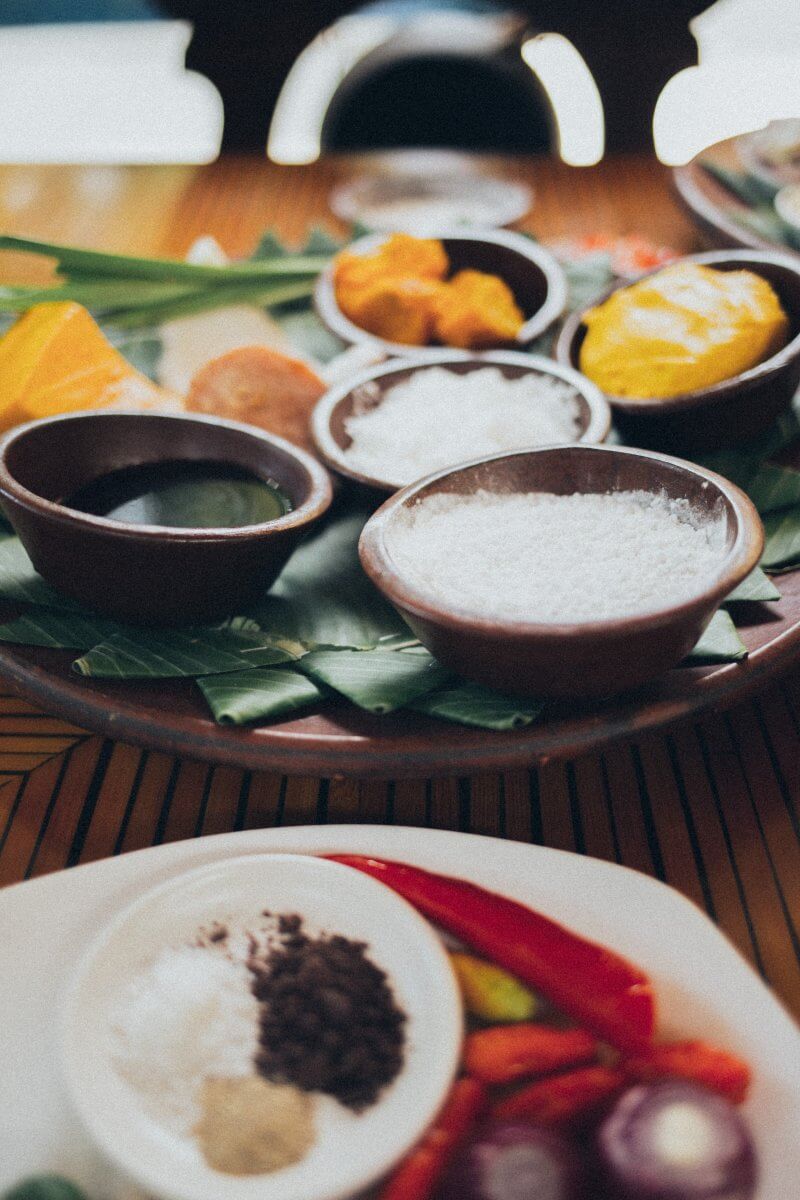
FAQs
How much garlic powder is equal to 1 teaspoon of minced garlic?
Great question! When swapping garlic powder for minced garlic, the general rule of thumb is to use 1/4 teaspoon of garlic powder for every 1 teaspoon of minced garlic. Remember, garlic powder is quite concentrated, so a little goes a long way.
Is garlic powder just dehydrated garlic?
Yes, you’re right. Garlic powder is simply garlic that’s been dehydrated and then ground into a fine powder. It retains the flavor of fresh garlic but is more concentrated, making it super handy for adding a quick garlic kick to your dishes without the fuss of peeling and mincing.
When to add garlic powder when cooking?
Garlic powder is best added early in the cooking process. This allows it to fully rehydrate and release its flavors into the dish. Whether you’re making soups, sauces, or marinades, adding garlic powder at the beginning ensures that garlicky goodness infuses throughout. Just be careful not to add it too late, or it might taste a bit raw and overpowering.
Summary for Garlic Powder substitutes
Okay – that’s you all sorted with a suitable substitute for garlic powder.
Garlic powder is commonly used as a seasoning and flavoring agent in various cuisines around the world. It offers a convenient alternative to fresh garlic, as it is easier to store and has a longer shelf life. Garlic powder can be used in a wide range of dishes, including soups, stews, sauces, marinades, dressings, and spice blends. Easily incorporated into a variety of dishes, garlic powder is an essential cooking ingredient. Used in a wide variety of cuisines such as Asian, Thai, and Chinese, it is a must-have product in your pantry. It adds a distinct garlic flavor to dishes and is particularly useful when a milder and more evenly distributed garlic taste is desired.
It’s important to note that the flavor of garlic powder is different from that of fresh garlic. While fresh garlic has a more pungent and intense flavor, garlic powder has a milder and more subdued taste. The intensity of the flavor can vary depending on the brand and quality of the garlic powder.
However if you do run out of garlic powder then the substitute products listed above will all provide you with an alternative. Which one will you choose?
And remember if you’re looking to replace garlic powder in a recipe, you’ll need to consider what role the garlic powder is playing in the recipe and choose a suitable replacement that provides similar benefits.
We have gathered together a lot more facts on ingredients such as herbs, spices, oils, nuts, etc. if you would like to learn some more.
